This month, long-time supporter and American Friends of The School of St Jude (AFSJ) President, Laurel, returned to the school for the Form 6 Graduation. On her eighth visit, we caught up with her to find out what keeps bringing her back.

I was president of my Rotary Club then, and I was intrigued after hearing a talk about The School of St Jude. We decided it would be our international project. We initially tried sending parcels with supplies, but then decided it would be better to visit the school ourselves. While a Rotary grant wasn't possible, we started meeting students and my club began sponsoring Beatrice, who graduated this year. So even though she's not listed as a student I sponsor, I financially support her through the club.
Watching them blossom and grow and work towards their dreams has been phenomenal. Take Abdullah, for example. When I first saw him in 2021, his artwork was done on graph paper, and he told me his real dream was to work in animation. With the help of the Art Program and other school staff, he created a portfolio, and eventually, we found a university in South Africa for him to study animation. It's incredibly exciting to see him pursuing his passion. I have students who have gone all the way through to Form 6 and are now in tertiary education. I also have ones who are at the beginning of their journey like Jafari, who's in Form 3.
I think the most exciting thing is that they're all given an equal opportunity at St Jude’s, yet they're all so different. Being able to sponsor multiple students, you see that they're allowed to become their own person. But the common factor is all of those values that are instilled in them at The School of St Jude; the idea that someone has helped you, now you get to help someone else. Watching them apply that through their own strengths is incredibly rewarding. Whether it's Elia potentially becoming a sportsman, Abdallah in his art element, Happiness wanting to be a bank manager or Samwel aspiring to be a doctor - the school equips them all to do different things, and that's what's most exciting.
Initially, I didn't know a lot about the school beyond what I'd read and heard. But because this is my eighth visit, I've gotten to watch the students grow up and evolve. I've also become involved on another level with the board of the American Friends of The School of St Jude, doing fundraising and tours. This has made me feel really comfortable and passionate about the school, making it easy for me to share what's happening here with different groups in the United States. My comfort level has grown to the point where I can now facilitate things like a FaceTime call for a friend's sponsored student to connect with them during graduation.
You can't describe it. No matter what you try to tell them or what a picture looks like, it's not the same. When they come, they will be forever changed and they'll understand firsthand what the work of the school is. Until they're here, they really don't understand. Once they experience it, they can't help but want to sponsor and support a student, whether it's a partial or full sponsorship. I also reassure them about coming to Tanzania, the school will take care of them, they won't be on their own, and communication isn't an issue. The culture here, where people genuinely take care of each other and share, is something truly remarkable that you only fully grasp by being here.

The lights sparkled, the drinks flowed, and the air buzzed with creativity as St Jude’s Sisia Campus came alive last month for its first-ever Art Exhibition and Gala, designed to spotlight budding artists and support the growth of the Student Art Program.
Themed Transforming Lives Through Art, the two-part event kicked off with a vibrant family fun day, featuring live painting, food vendors, face painting, sip and paint, and children’s activities. As evening fell, the campus transformed into an elegant outdoor gala, welcoming guests in style to an unforgettable night of live entertainment, a gourmet three-course meal, and an auction of student artworks.
Jane, Experience and Community Programs Senior Manager at The School of St Jude, says the event offered a meaningful way for the local community to engage with the school’s mission while showcasing the Student Art Program’s role in fostering creativity, confidence, and self-expression.
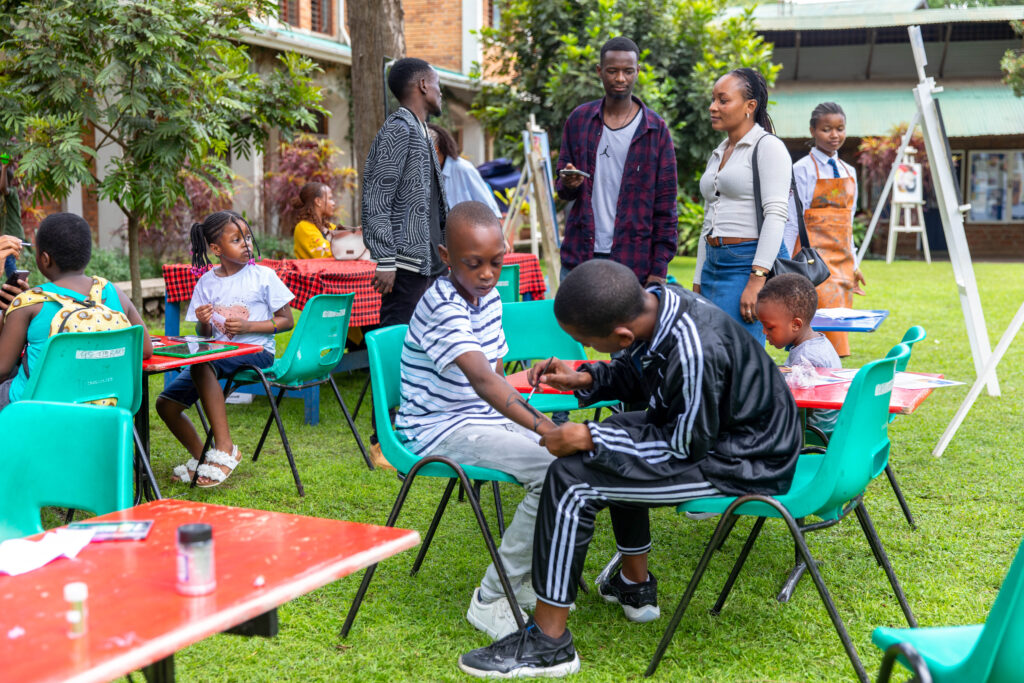
“The Art Exhibition and Gala offered the local community the unique opportunity to interact directly with our students, learn about their artistic journeys, and see the impact of our Student Art Program firsthand,” says Jane.
“For many students, this was their first time exhibiting and selling their work, so it was a huge milestone. Watching them talk about their pieces with guests was incredibly special. These interactions boosted their confidence and helped attendees to understand the stories behind the artworks, and connect on a deeper level.”
Among the young talent featured was Denis, a Form 4 graduate who exhibited a total of 24 pieces, three of which were sold during the event. He also assisted with the exhibition setup, learning how to hang pieces, position easels, and curate a professional display - an invaluable experience for an aspiring professional artist.
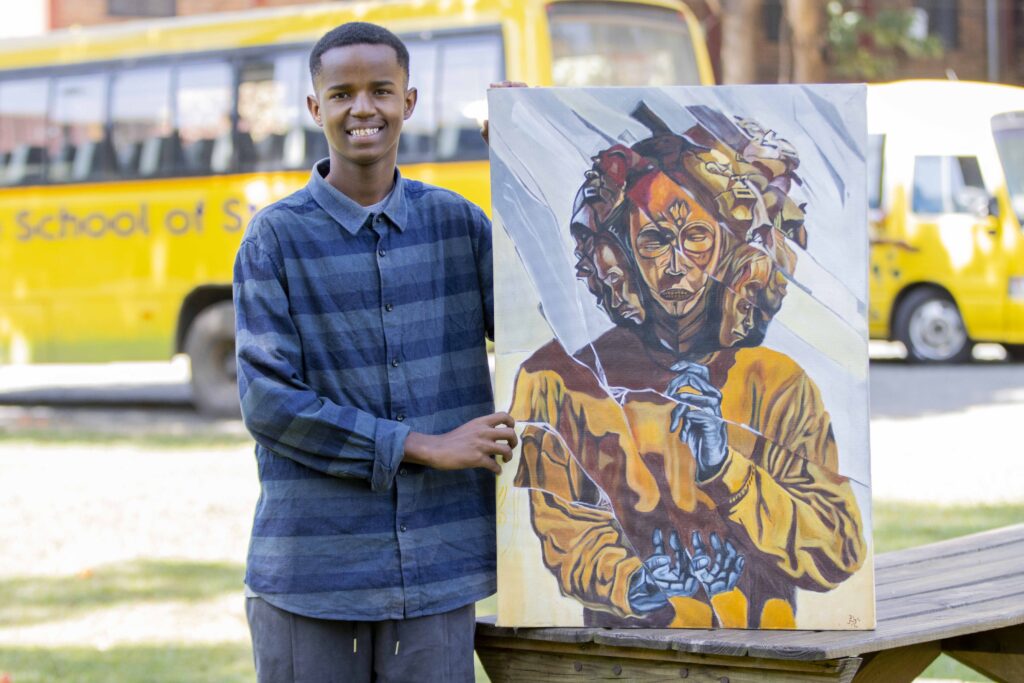
“I’ve been sketching since primary school. But when I started Form 1, that’s when St Jude’s launched the Student Art Program. That’s when I got to try acrylics and paint on canvas. It really changed everything for me,” shares Denis.
“I am happy that people appreciate my work. My dream is to have my own gallery and studio one day, so I also loved seeing the event come together from behind-the-scenes.”
Each student receives a 10% commission from their original artwork sale, with the remaining 90% reinvested back into the Student Art Program to provide quality materials, resources, and creative opportunities. As for Denis, he used part of his earnings to purchase new art supplies, put some away in savings, and shared the remainder with his family.
“When I’m doing art, I feel like I’m in another universe. Being able to share my work with others and knowing they love it is a very good feeling. I hope to sell more pieces in the future,” he adds.
Thanks to the event’s success, Jane is confident it will open the door for many more art exhibitions in the future.
“Events like this play a big part in supporting and developing the skills of our student artists, while giving supporters the opportunity to have a little piece of St Jude’s in their own home,” says Jane.
“We’re excited to keep creating opportunities where our students can grow, express themselves, and shine, and with so much talent at St Jude’s, we’re just getting started.”
It’s no secret that the Annual Science Day has become a launchpad for the next generation of innovators, and this year’s event was no exception! Now in its 15th year, the day brought together students to present both individual and group projects that not only highlighted their expertise in science, ICT, and maths, but also provided creative solutions to some of today’s most pressing global challenges.
With nearly half the student body participating, many focused on pioneering renewable energy solutions like solar power and biogas, pushing us closer to a sustainable future.
Take a closer look at the remarkable projects from this year’s Science Day and see how these young innovators are shaping the world of tomorrow.
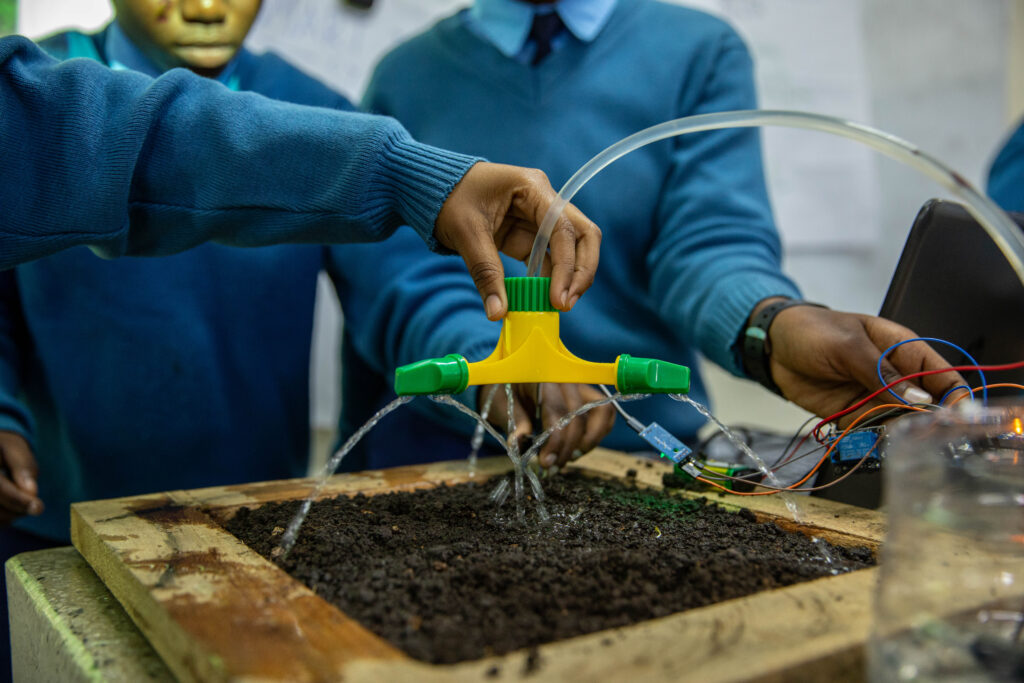
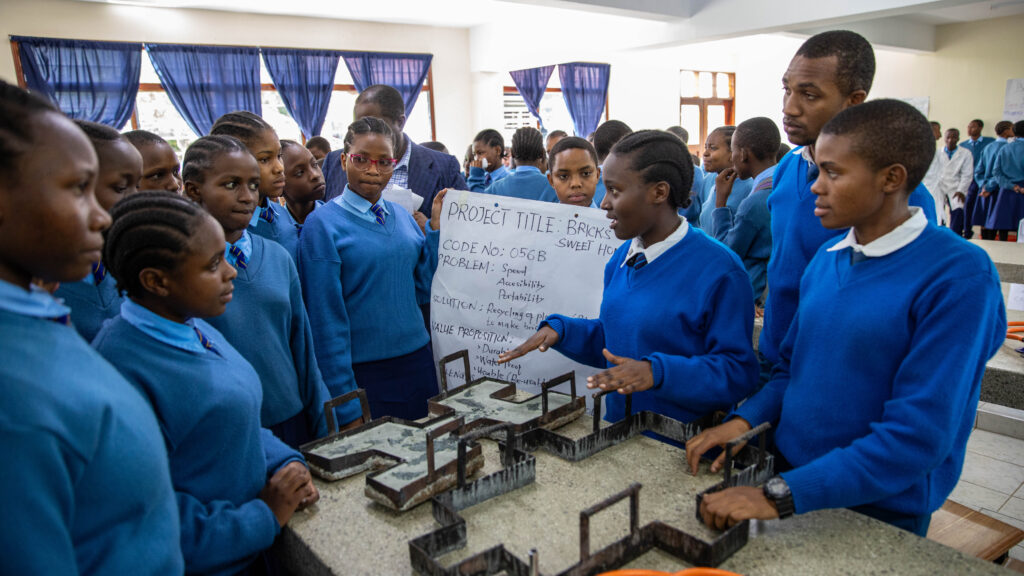
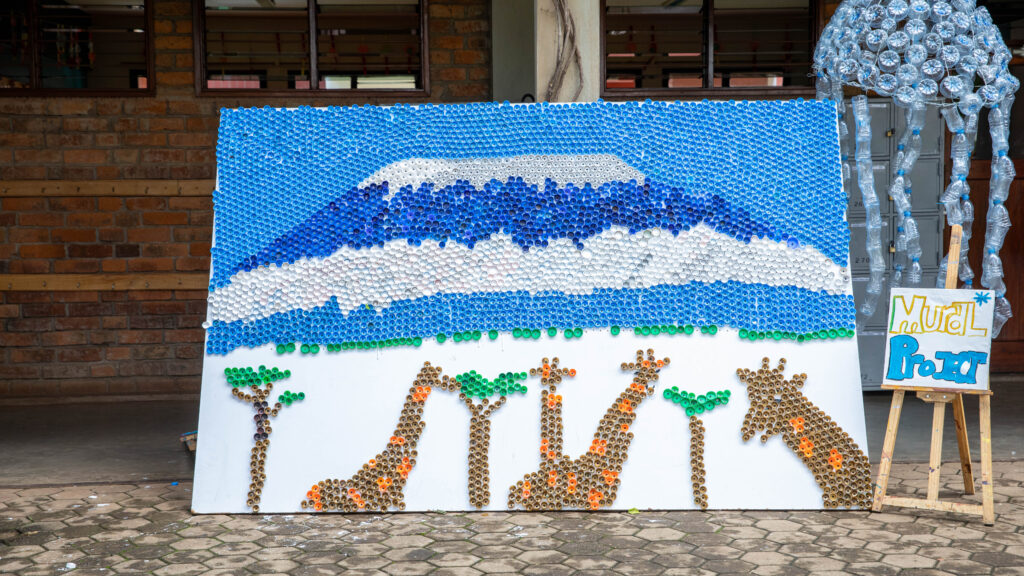
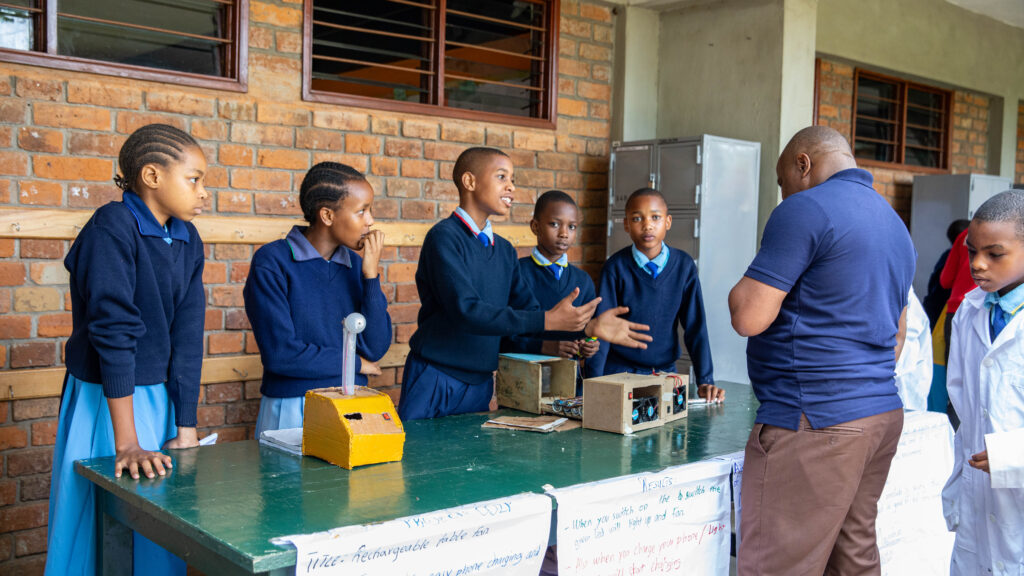
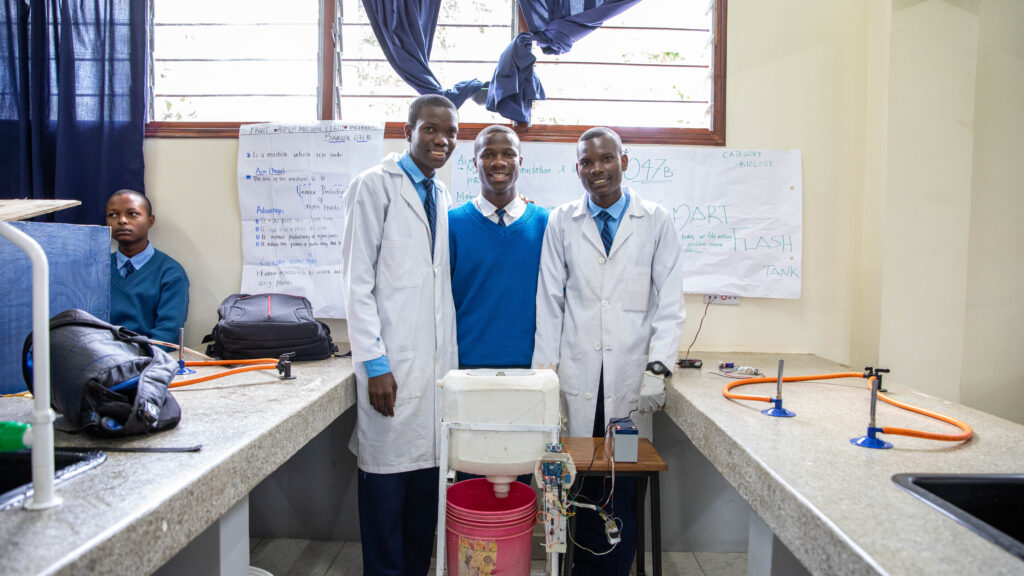


At St Jude’s, we know that good nutrition and health are the foundation for student success. Every day, 1,800 students and 300+ staff receive hot, nutritious meals that fuel their learning and overall wellbeing. But what does it take to keep everyone well-fed and healthy? Let’s take a closer look.
1 million meals a year
Each week, St Jude’s serves an incredible 32,000 hot meals—adding up to more than 1 million meals annually! Our dedicated kitchen team works tirelessly to prepare hearty, nutritious meals using staples such as beans, rice, maize flour, fruits and vegetables. To ensure every student receives a balanced diet, the school invests nearly AU$11,000 weekly in high-quality food. Students requiring special diets are catered for too.
Fresh, local, and nutritious
Good nutrition goes beyond filling plates. St Jude’s prioritises quality by sourcing more than 15,000kg of fresh fruits and vegetables monthly from trusted local suppliers. These nutrient-rich foods give students the vitamins and minerals they need to stay healthy, focused, and energised.
More than just meals: a holistic approach to student health
At St Jude’s, student health is as important as academic excellence. That’s why we take a comprehensive approach to wellbeing through:
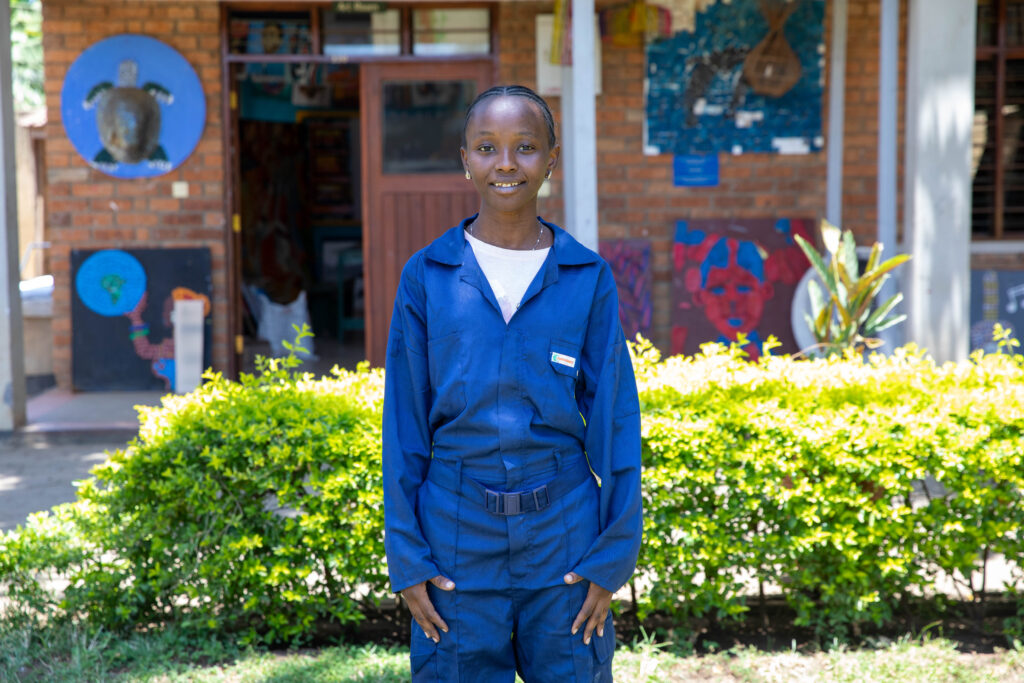
At St Jude’s, Form 4 graduates have the opportunity participate in a Community Service Semester (CSS) as a way to give back for the education they’ve received. For Fadhila, who completed her O Levels last year, choosing to serve as an art teacher in the Girls’ Secondary School art room at St Jude’s was an easy decision. With a flair for all things creative, she reflects on how the school nurtured her talent and helped her grow as an artist.
I joined St Jude's in 2014 and graduated from Form 4 in 2024. I appreciate the support the students receive from teachers and how they help us grow our talents.
I was drawn to art because it allows for creativity, and I find it really enjoyable to create. My art teacher, Mr Kephas, has been a huge source of support and inspiration for me. Plus, one of my siblings is also an artist!
I stay creative by working on many different art projects and constantly coming up with new ideas.
St Jude's supports my skills and talent by providing an excellent teacher, quality materials, and a lot of encouragement. Some of my proudest moments include finishing a difficult artwork that turns out beautiful and having my artwork sell out.
I would love to have my own art workshop where I can help support aspiring artists. I would also love to become a famous fashion designer and artist. I love all things creative!
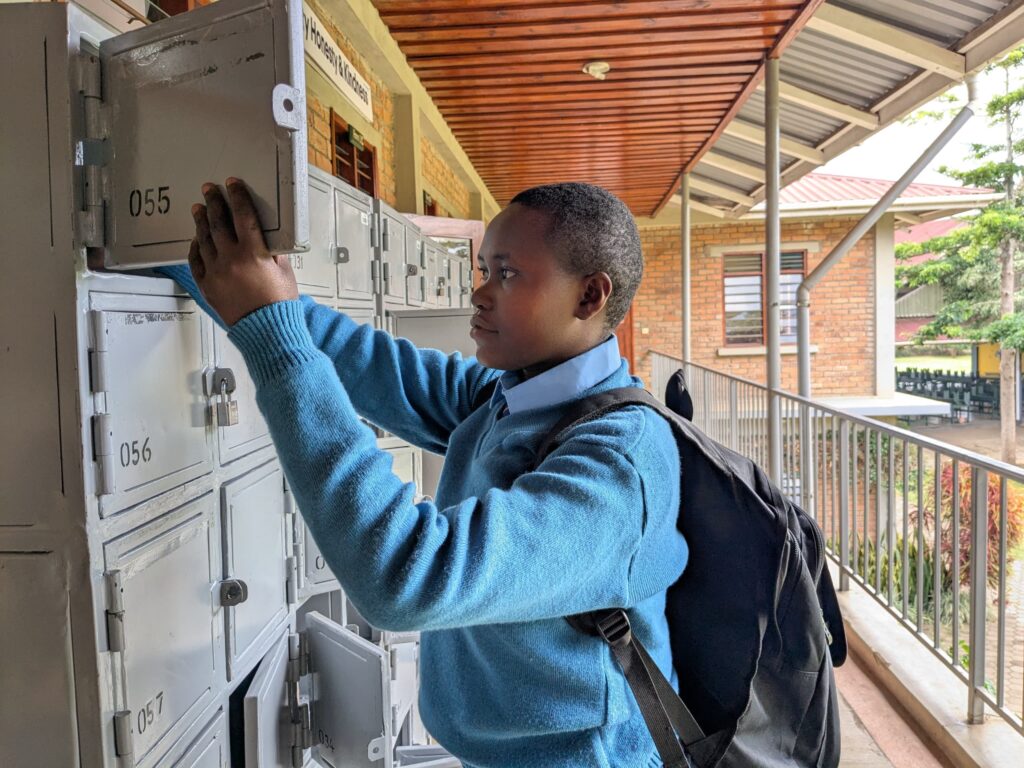
Before joining St Jude’s, 14-year-old Agripina’s day used to start at the crack of dawn. First, she checks on her elderly grandmother, cleans around the house, and tends to livestock. Afterward, she prepares her younger sister, and the pair would begin the 30-minute walk to school, often arriving early enough for Agripina to squeeze in about an hour of personal study before class.
"I have always maintained a strict daily schedule to balance my studies and chores at home," explains Agripina, one of the new students at St Jude's. "There was hardly enough time in the day to do everything so I had to get creative with my time," she adds.
For example, after school, Agripina stays a few more hours for personal studies and dedicates her free time on weekends to group discussions and additional studies. To make the most of her long commute, she would discuss lessons with schoolmates along the way. Her discipline, consistency, and hard work paid off as Agripina maintained the top position in her class throughout her primary school education.
In Tanzania, primary education is the first seven years of school, from Standard 1 to 7. At the end of Standard 7, students sit for a series of standardised national exams. Those who pass may be eligible to attend government school to continue with secondary education.
"If I made it to secondary school, I’d be the first in my family to do so," says Agripina. "But first, I had to pass the national examinations," she adds.
Agripina doubled down on her already tight schedule in preparation for her national exams, dedicating every moment of her free time to her studies. She would study by the fire while preparing family dinner, stay up late, and organise a small discussion group with classmates from the same neighbourhood. Her efforts eventually paid off, and Agripina passed her national examinations with remarkable results.
However, passing the Standard 7 national examination doesn't necessarily guarantee a spot in secondary school.
“Passing my Standard 7 exams was only the first step,” explains Agripina. “Next, I had to hope and wait for the government to allocate me to a school. This part is tricky because it’s completely out of my control,” she adds.

In Tanzania, government schools provide the most affordable education; they don’t charge school fees, but parents are expected to contribute to food, transport, stationery, uniforms, and other costs. Unfortunately, there aren’t enough secondary schools in Tanzania to match the growing number of primary school graduates. National data indicates only one secondary school for every four primary schools. It’s not uncommon for students to miss out on secondary education despite passing their exams due to the limited spots/places available.
Furthermore, secondary schools are often located far from students’ homes, making access even more challenging.
“I knew plenty of students, especially girls, who passed their exams but still didn’t make it to secondary school,” recalls Agripina. “It was scary to think that I could potentially end up in the same spot,” she adds.
Luckily for Agripina, she didn’t have to wait for the government's allocation. Her remarkable results caught the attention of St Jude’s, which promptly sent her an invitation to apply for a scholarship. In no time, she was on her way to one of St Jude’s centres to try her luck.
“It was quite an experience. There were so many students with their parents and guardians. St Jude’s took care of everything—transportation, food, and accommodation—since we had to spend the night and start the application process the following morning," she shares.
Agripina went through academic testing and excelled in all of them. Next came a pre-house check and document screening to determine her eligibility for the next steps. The last phase was a home visit by
St Jude’s staff for poverty assessment to determine whether the student’s family meets the school's scholarship criteria. This thorough process ensures that the most deserving students with exceptional academic potential make it through the scholarship program.
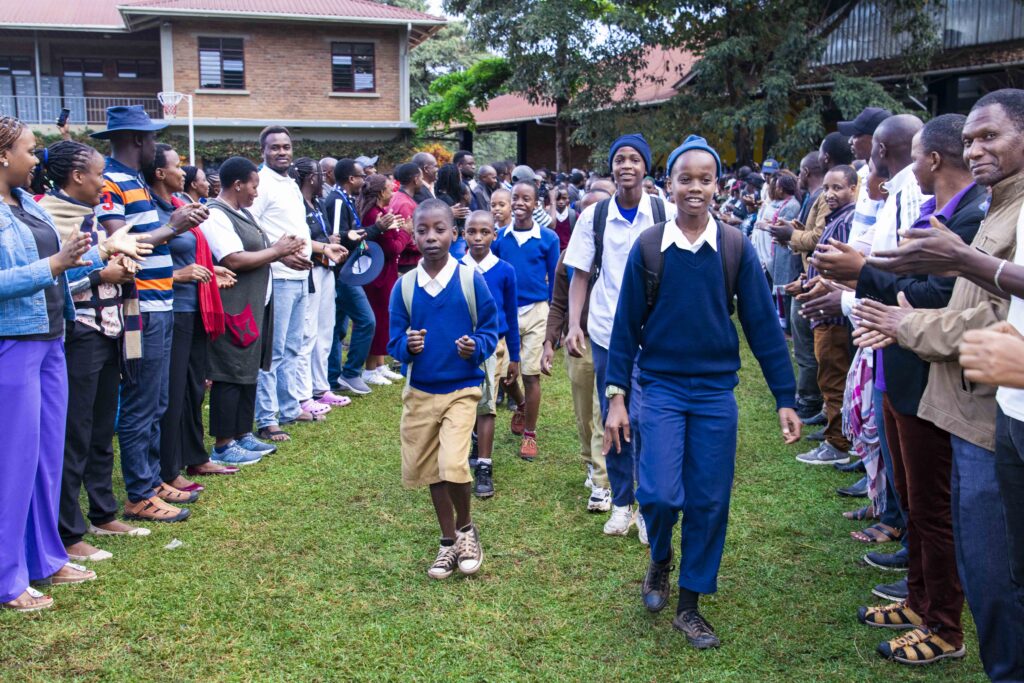
Out of over 2,000 students who applied for a scholarship at St Jude’s, Agripina was one of the 194 who eventually made it to the end.
“Joining St Jude’s makes all my hard work worth it,” she reflects. “I’ve only been here a few days, but I already love the school, the teachers, and my fellow students,” she adds happily.
Agripina aspires to become a doctor. Fittingly, she has joined St Jude’s Secondary Girls’ School, which boasts well-equipped science laboratories, excellent sports and academic programs, and a thriving science culture. With her discipline, determination, and access to St Jude’s resources, there’s no doubt she’ll achieve her dreams.